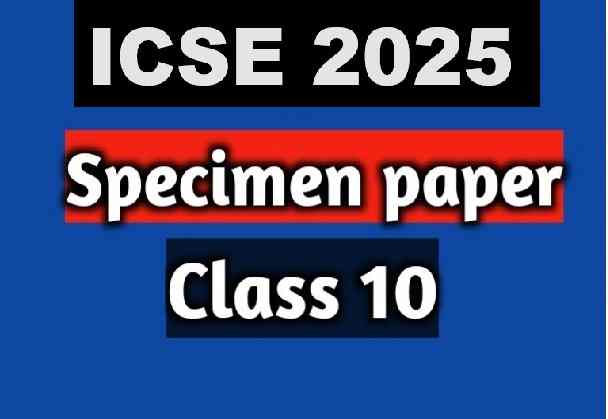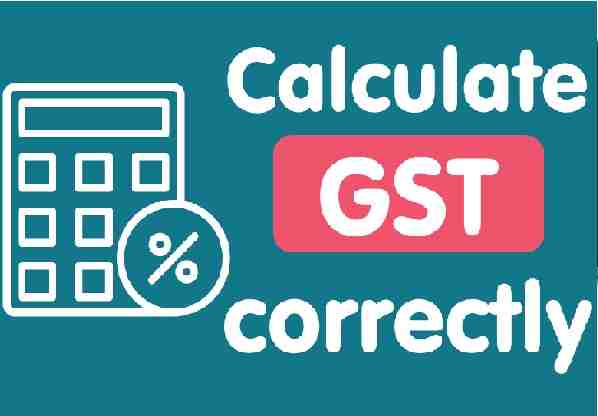ML Aggarwal Quadratic Equations Exe-5.4 Class 10 ICSE Maths Solutions . We Provide Step by Step Answer of Exe-5.4 ( discriminant ) Questions for Quadratic Equations in One Variable as council prescribe guideline for upcoming board exam. Visit official Website CISCE for detail information about ICSE Board Class-10.
ML Aggarwal Ch-5 Quadratic Equations in one Variable Exercise- 5.4 Class 10 ICSE Maths Solutions
| Board | ICSE |
| Publications | Avichal Publishig Company (APC) |
| Subject | Maths |
| Class | 10th |
| Chapter-5 | Quadratic Equations in one Variable |
| Writer | ML Aggarwal |
| Book Name | Understanding |
| Topics | Solution of Exe-5.4 ( discriminant ) Questions |
| Edition | 2022-2023 |
Quadratic Equations in one Variable Exe-5.4
page-75
Question- 1 Find the discriminant of the following equations and hence find the nature of roots:
(i) 3x² – 5x – 2 = 0
(ii) 2x² – 3x + 5 = 0
(iii) 16x² – 40x + 25 = 0
(iv) 2x² + 15x + 30 = 0.
Answer -1
(i) 3x² – 5x – 2 = 0
Here a = 3, b = -5, c = -2
D = b2 – 4ac
= (-5)2 – 4(3) (-2)
= 25 + 24
= 49
Discriminate, D = 49
D > 0
Hence Roots are real and distinct.
(ii) 2x² – 3x + 5 = 0
a = 2, b = -3, c = 5
using the formula,
D = b2 – 4ac
= (-3)2 – 4(2) (5)
= 9 – 40
= -31
Discriminate, D = -31
D < 0
Hence Roots are not real.
(iii) 16x² – 40x + 25 = 0
a = 16, b = -40, c = 25
using the formula,
D = b2 – 4ac
= (-40)2 – 4(16) (25)
= 1600 – 1600
= 0
Discriminate, D = 0
D = 0
Hence Roots are real and equal.
(iv) 2x² + 15x + 30 = 0
Let us consider,
a = 2, b = 15, c = 30
using the formula,
D = b2 – 4ac
= (15)2 – 4(2) (30)
= 225 – 240
= – 15
Discriminate, D = -15
D < 0
Hence Roots are not real.
Question -2 Discuss the nature of the roots of the following quadratic equations :
(i) 3x² – 4√3x + 4 = 0
(ii) x² – x/2 + 4 = 0
(iii) – 2x² + x + 1 = 0
(iv) 2√3x² – 5x + √3 = 0
Answer -2
(i) 3x² – 4√3x + 4 = 0
a = 3, b = -4√3, c = 4
using the formula,
D = b2 – 4ac
= (-4√3)2 – 4(3) (4)
= 16(3) – 48
= 48 – 48
= 0
Discriminate, D = 0
D = 0
Hence Roots are real and equal.
(ii) x² – 1/2x + 4 = 0
a = 1, b = -1/2, c = 4
using the formula,
D = b2 – 4ac
= (-1/2)2 – 4(1) (4)
= 1/4 – 16
= -63/4
Discriminate, D = -63/4
D < 0
Hence Roots are not real.
(iii) – 2x² + x + 1 = 0
a = -2, b = 1, c = 1
using the formula,
D = b2 – 4ac
= (1)2 – 4(-2) (1)
= 1 + 8
= 9
Discriminate, D = 9
D > 0
Hence Roots are real and distinct.
(iv) 2√3x² – 5x + √3 = 0
a = 2√3, b = -5, c = √3
using the formula,
D = b2 – 4ac
= (-5)2 – 4(2√3) (√3)
= 25 – 24
= 1
Discriminate, D = 1
D > 0
Hence Roots are real and distinct.
Question -3 Find the nature of the roots of the following quadratic equations:
(i) x² – x / 2 – 1/2 = 0
(ii) x² – 2√3x – 1 = 0 If real roots exist, find them.
Answer- 3
(i) x² – 1/2x – 1/2 = 0
a = 1, b = -1/2, c = -1/2
using the formula,
D = b2 – 4ac
= (-1/2)2 – 4(1) (-1/2)
= 1/4 + 2
= (1+8)/4
= 9/4
Discriminate, D = 9/4
D > 0
Hence Roots are real and unequal.
(ii) x² – 2√3x – 1 = 0
a = 1, b = 2√3, c = -1
using the formula,
D = b2 – 4ac
= (2√3)2 – 4(1) (-1)
= 12 + 4
= 16
Discriminate, D = 16
D > 0
Hence Roots are real and unequal.
Question -4 Without solving the following quadratic equation, find the value of ‘p’ for which the given equations have real and equal roots:
(i) px² – 4x + 3 = 0
(ii) x² + (p – 3) x + p = 0.
Answer -4
(i) px² – 4x + 3 = 0
Here a = p, b = -4, c = 3
using the formula,
D = b2 – 4ac
= (-4)2 – 4(p) (3)
= 16 – 12p
Hence, roots are real.
16 – 12p = 0
16 = 12p
p = 16/12
= 4/3
∴ p = 4/3
(ii) x² + (p – 3)x + p = 0
a = 1, b = (p – 3), c = p
using the formula,
D = b2 – 4ac
= (p – 3)2 – 4(1) (p)
= p2 – 32 – 2(3) (p) – 4p
= p2 + 9 – 6p – 4p
= p2 – 10p + 9
roots are real and have equal roots.
p2 – 10p + 9 = 0
p2 – 9p – p + 9 = 0
p(p – 9) – 1 (p – 9) = 0
(p – 9) (p – 1) = 0
(p – 9) = 0 or (p – 1) = 0
p = 9 or p = 1
∴ p = 1, 9
Question 5 Find the value (s) of k for which each of the following quadratic equation has equal roots :
(i) x2 + 4kx + (k2 – k + 2) =0
(ii) (k – 4) x² + 2(k – 4) x + 4 = 0
Answer -5
(i) x² + 4kx + (k2 – k + 2) = 0
a = 1, b = 4k, c = k2 – k + 2
using the formula,
D = b2 – 4ac
= (4k)2 – 4(1) (k2 – k + 2)
= 16k2 – 4k2 + 4k – 8
= 12k2 + 4k – 8
As, roots are equal, D = 0
12k2 + 4k – 8 = 0
3k2 + k – 2 = 0
3k2 + 3k – k – 2 = 0
3k(k + 1) – 1(k + 2) = 0
(3k – 1) (k + 2) = 0
(3k – 1) = 0 or (k + 2) = 0
k = 1/3 or k = -2
∴ k = 1/3, -2
(ii) (k – 4)x² + 2(k – 4)x + 4 = 0
a = (k – 4), b = 2(k – 4), c = 4
using the formula,
D = b2 – 4ac
= (2(k – 4))2 – 4(k – 4) (4)
= (4(k2 + 16 – 8k)) – 16(k – 4)
= 4(k2 – 8k + 16) – 16k + 64
= 4 [k2 – 8k + 16 – 4k + 16]
= 4 [k2 – 12k + 32]
Since, roots are equal.
4 [k2 – 12k + 32] = 0
k2 – 12k + 32 = 0
k2 – 8k – 4k + 32 = 0
k(k – 8) – 4 (k – 8) = 0
(k – 8) (k – 4) = 0
(k – 8) = 0 or (k – 4) ≠ 0
k = 8 or k ≠ 4
∴ k = 8
Question -6 Find the value(s) of m for which each of the following quadratic equation has real and equal roots:
(i) (3m + 1)x² + 2(m + 1)x + m = 0
(ii) x² + 2(m – 1) x + (m + 5) = 0
Answer- 6
(i) (3m + 1)x² + 2(m + 1)x + m = 0
Here a = 3m + 1, b = 2(m + 1), c = m
Let a = (3m + 1), and b = 2(m + 1), c = m
using the formula,
D = b2 – 4ac
= (2(m + 1))2 – 4 (3m + 1) (m)
= 4(m2 + 1 + 2m) – 4m(3m + 1)
= 4(m2 + 2m + 1) – 12m2 – 4m
= 4m2 + 8m + 4 – 12m2 – 4m
= -8m2 + 4m + 4
, roots are equal.
D = 0
-8m2 + 4m + 4 = 0
-2m2 + m + 1 = 0
2m2 – m – 1 = 0
2m2 – 2m + m – 1 = 0
2m(m – 1) +1 (m – 1) = 0
(m – 1) (2m + 1) = 0
(m – 1) = 0 or (2m + 1) = 0
m = 1 or 2m = -1
m = 1 or m = -1/2
∴ m = 1, -1/2
(ii) x² + 2(m – 1) x + (m + 5) = 0
a = 1, b = 2(m – 1), c = (m + 5)
using the formula,
D = b2 – 4ac
= (2(m – 1))2 – 4 (1) (m + 5)
= [4(m2 + 1 – 2m)] – 4m – 20
= 4m2 – 8m + 4 – 4m – 20
= 4m2 – 12m – 16
Hence, roots are equal.
D = 0
4m2 – 12m – 16 = 0
Divide by 4, we get.
m2 – 3m – 4 = 0
m2 – 4m + m – 4 = 0
m(m – 4) + 1 (m – 4) = 0
(m – 4) (m + 1) = 0
(m – 4) = 0 or (m + 1) = 0
m = 4 or m = -1
∴ m = 4, -1
Question -7 Find the values of k for which each of the following quadratic equation has equal roots:
(i) 9x² + k x + 1 = 0
(ii) x² – 2kx + 7k – 12 = 0
Also, find the roots for those values of k in each case.
Answer -7
(i) 9x² + k x + 1 = 0
Here a = 9, b = k, c = 1
using the formula,
D = b2 – 4ac
= (k)2 – 4 (9) (1)
= k2 – 36
roots are equal. given so
D = 0
k2 – 36 = 0
(k + 6) (k – 6) = 0
(k + 6) = 0 or (k – 6) = 0
k = -6 or k = 6
∴ k = 6, -6
When k = 6, then
9x² + kx + 1 = 0
9x2 + 6x + 1 = 0
(3x)2 + 2(3x)(1) + 12 = 0
(3x + 1)2 = 0
3x + 1 = 0
3x = -1
x = -1/3, -1/3
When k = -6, then
9x² + kx + 1 = 0
9x2 – 6x + 1 = 0
(3x)2 – 2(3x)(1) + 12 = 0
(3x – 1)2 = 0
3x – 1 = 0
3x = 1
x = 1/3, 1/3
(ii) x² – 2kx + 7k – 12 = 0
a = 1, b = -2k, c = (7k – 12)
using the formula,
D = b2 – 4ac
= (-2k)2 – 4 (1) (7k – 12)
= 4k2 – 28k + 48
Since, roots are equal.
D = 0
4k2 – 28k + 48 = 0
k2 – 7k + 12 = 0
k2 – 3k – 4k + 12 = 0
k(k – 3) – 4 (k – 3) = 0
(k – 3) (k – 4) = 0
(k – 3) = 0 or (k – 4) = 0
k = 3 or k = 4
∴ k = 3, 4
Now, let us substitute in the equation
When k = 3, then
using the formula,
= [-(-2k) ± √0] / 2(1)
= [2(3)]/2
= 3
x = 3, 3
When k = 4, then
using the formula,
= [-(-2k) ± √0] / 2(1)
= [2(4)] / 2
= 8/2
= 4
x = 4, 4
Question -8 Find the value(s) of p for which the quadratic equation (2p + 1)x² – (7p + 2)x + (7p – 3) = 0 has equal roots. Also find these roots.
Answer -8
The quadratic equation given is (2p + 1)x² – (7p + 2)x + (7p – 3) = 0
Comparing with ax² + bx + c = 0,
a = (2p + 1), b = – (7p + 2), c = (7p – 3)
using the formula,
D = b2 – 4ac
0 = (– (7p + 2))2 – 4 (2p + 1) (7p – 3)
= 49p2 + 4 + 28p – 4[14p2 – 6p + 7p – 3]
= 49p2 + 4 + 28p – 56p2 – 4p + 12
= -7p2 + 24p + 16
-7p2 + 28p – 4p + 16 = 0
-7p(p – 4) – 4 (p – 4) = 0
(p – 4) (-7p – 4) = 0
(p – 4) = 0 or (-7p – 4) = 0
p = 4 or -7p = 4
p = 4 or p = -4/7
page-76
Question-9 Find the value(s) of p for which the equation 2x² + 3x + p = 0 has real roots.
Answer -9
2x² + 3x + p = 0
Here, a = 2, b = 3, c = p
using the formula,
D = b2 – 4ac
= (3)2 – 4 (2) (p)
= 9 – 8p
Since, roots are real.
9 – 8p ≥ 0
9 ≥ 8p
8p ≤ 9
p ≤ 9/8
Question-10 Find the least positive value of k for which the equation x² + kx + 4 = 0 has real roots.
Answer -10
x² + kx + 4 = 0
Here, a = 1, b = k, c = 4
using the formula,
D = b2 – 4ac
= (k)2 – 4 (1) (4)
= k2 – 16
, roots are real and positive.
k2 – 16 ≥ 0
k2 ≥ 16
k ≥ 4
k = 4
Question-11 Find the values of p for which the equation 3x² – px + 5 = 0 has real roots.
Answer-11
3x² – px + 5 = 0
Here, a = 3, b = -p, c = 5
By using the formula,
D = b2 – 4ac
= (-p)2 – 4 (3) (5)
= p2 – 60
Since, roots are real.
p2 – 60 ≥ 0
p2 ≥ 60
p ≥ ± √60
p ≥ ± 2√15
p ≥ + 2√15 or p ≤ -2√15
— : End of ML Aggarwal Quadratic Equations Exe-5.4 Class 10 ICSE Maths Solutions : –
Return to :- ML Aggarwal Solutions for ICSE Class-10
Thanks
Please Share with Your Friends


